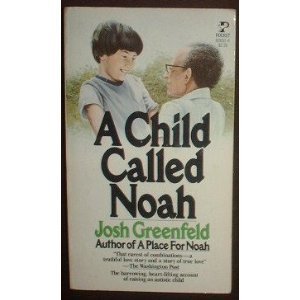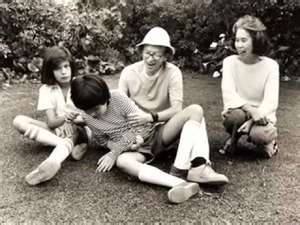 Josh Greenfeld By Bob Vickrey
I suppose that one would have to categorize my old pal and veteran writer, Josh Greenfeld, as a card-carrying, genuine curmudgeon.
He is smart, quick-witted, feisty—and at heart—a staunch non-conformist. Greenfeld once met the iconoclastic Dorothy Parker, and I’ve often imagined the two of them sitting across from one another at the Algonquin Round Table in a colossal battle of wits. Parker might have met her match if that scenario had truly culminated. I can also imagine that she might have never gotten a word in edgewise.
Josh is a veteran screenwriter, novelist, memoirist, and playwright. One of his movie scripts, Harry and Tonto, was nominated for an Academy Award, for which Art Carney won Best Actor in 1974. He is the author of numerous critically acclaimed books including a trilogy about his autistic son, Noah. His highly regarded novel, The Return of Mr. Hollywood, was selected as one of the “100 Best Books” written about Hollywood by the Academy of Motion Picture Arts and Sciences.
Greenfeld has a slight build with wisps of thinning gray hair underneath his signature white captain’s hat that appears old enough to have been originally worn by the Captain on “Gilligan’s Island.” His daily wardrobe varies during the seasons, but on a sunny summer day, he sometimes wears a weathered red scarf underneath the hat—giving the appearance of a poor man’s version of Lawrence of Arabia. On mildly cold days in winter, he can be spotted wearing one black, and one white glove. When asked if this was his salute to Michael Jackson, he said, “No, I just lost the other matching gloves.”
Josh has never been at a loss for words about his unique views on a wide variety of topics:
*On President George W. Bush’s comment about “exporting democracy” to other countries, Greenfeld offered: “I don’t understand; democracy barely works here!”
*On the current cinema: “There has never been an original idea in a movie. Those are all found in books.”
*On his writing career when asked what project he was busy working on at his village office: “Longer afternoon naps.”
*On his frustration with his beloved Michigan Wolverine’s football team’s running back: “He may be small, but he’s deceptively slow.”
*On giving up his career as a New York magazine journalist: “I just got too old for it all. A writer is like a third baseman; your legs are the first to go.”
 A Child Called Noah Greenfeld’s book about his youngest son, A Child Called Noah, became a pioneering classic in the field of autism and received enormous publicity and praise upon its publication in 1972. His heartrending memoir of the family struggle to deal with his son’s condition was one of the first books to deal with a little-understood illness. He and his wife, Foumiko Kometani, told their story that year to Dan Rather on the CBS television show, 60 Minutes. He later wrote two more books about Noah which chronicled the later years in the family’s plight and their decisions regarding the placement of Noah in facilities better equipped to handle his unique problems.
Joshua Greenfeld was born in Malden, Massachusetts and raised in Brooklyn, New York. He attended Brooklyn College and received his Bachelor of Arts degree from the University of Michigan. He later completed his Master of Dramatic Arts degree at Columbia University.
He met Foumiko in Peterborough, New Hampshire in 1960, at the MacDowell Colony, the oldest artists’ colony in the United States, where they were both enjoying their separate “fellowships.” (His was a Guggenheim.) They married later that same year. They moved to Japan in 1962, where they had their first son, Karl.
 An early family picture After discovering the condition of their second child, Noah, the couple decided to move to Southern California where they were able to place him in the Behavioral Modification Center at UCLA when he was five years old. The move to Los Angeles prompted Greenfeld to trade his magazine journalism career for one in screenwriting.
Foumiko has been a lauded Japanese writer who was once awarded the Akutagawa Prize, Japan’s most prestigious literary award. Josh was quoted in a syndicated column by writer Richard Reeves that the award amounted to “The Pulitzer Prize with a Black Belt.” Foumi, as she is known by her friends, has also written about their developmentally disabled son.
Older son, Karl, wrote his own book about the experience entitled, Boy Alone: A Brother’s Memoir, published in 2009. He is the author of five non-fiction books as well as his first novel, Triburbia, published by Harpers in 2012. Karl has had an extensive career as magazine writer and editor, including stints as editor at the Tokyo Journal and Time Asia. He was editor-at-large for Sports Illustrated from 2004-2007.
 Karl (left) and Noah (right) Josh had developed a close circle of literary friends which included a veritable “Who’s Who” list of many of the most celebrated writers of the Twentieth Century: Philip Roth, Herb Gold, Joan Didion, John Gregory Dunne, Norman Mailer, Arthur Miller, Mario Puzo, James Baldwin, and Joseph Heller. He admitted recently to me that one of the downsides of living a long life is the pain of losing your best friends along the way.
Josh had reviewed a number of high profile books for the New York Times through the years and one of them had been a rave review of Roth’s first big success, Portnoy’s Complaint, in 1969. His review was later used in a collection in a special centennial edition, The New York Times Best Books of the Twentieth Century. When Josh went public with the fact that the reviewers were not paid for their work used in this collection, a New York writer asked Roth about Greenfeld’s comment. Roth casually responded, “That’s just Josh being Josh.”
When Josh read that Roth had not come to his defense in his challenge to the Times, he was hurt and angry at his old friend. The very reason Josh had spoken up about what he perceived to be the New York Time’s dereliction in payment was in fact, not about him; but instead, about all the young writers out there who were barely able to make ends meet while working in their craft. He thought Philip certainly should have understood his motivation in making the comment.
The very last person I would have expected to be involved in this public literary “tiff,” was—me. However, Houghton Mifflin, the publishing firm I worked for at the time, was once again publishing Roth. In 2000, he attended our sales conference luncheon in Boston to present his new book for the fall, The Human Stain.
 Greenfeld's friend, Philip Roth When I arrived at my designated dining table, I was surprised to see an impressively tall, handsome gentleman holding a chair for me, and inviting me to sit next to him. Roth had been apprised by our publicity director that I was a friend of Greenfeld’s, and thus my placement in the catbird seat beside him. Roth grinned at me and said simply, “How’s my old friend doing these days.” I gulped once, and said to him “Not too well when your name comes up.” He knew immediately what I was referring to, and bowed his head, likely in embarrassment and perhaps with a tad of regret. He told me he would take care of the matter right away when lunch was over, and promised he would call Josh from his hotel room.
I was incredibly surprised what had actually spilled out of my mouth during that luncheon directed at one of America’s most decorated and revered writers, but I remembered not having been even vaguely remorseful in doing so. My problem afterward was facing Josh when I returned home to Los Angeles, because he had warned me against bringing the subject up with Roth.
As if my return had been scripted, I stopped by the local post office to pick up my mail upon my arrival from the airport, and lo and behold; who should I meet walking toward me. Josh was expressionless for a short moment, before greeting me with slightly misty eyes and a big hug. He said, “We’re both too old for a squabble like this. Thank you.” The subject was never mentioned between us again.
The respect engendered among Greenfeld’s peers is certainly well deserved, given the course of his long writing career. Occasionally, I’ll take one of his books off its shelf and read a few pages to remind me of his particular style. His prose is extremely clean, spare, and crisp. He is a master wordsmith, who wastes not a word in his descriptive passages.
Josh has been a superb mentor to me in our 35 year friendship. He is a tough taskmaster. He minces few words in his criticism. He’s candid and frank. He’s usually the last person I send my own work to, so I can get it as clean as possible before his “eagle eye” finds any problem with its content or style. He always seems to be looking over my shoulder as I write, and I find I’ve gotten more comfortable by sensing his imagined presence. I asked him recently what had become of his harsh criticism of my work, and he said, “You’re getting better.”
In the late 1990s, I was worried that he had gotten rail-thin and didn’t seem his usual spirited self for several months. Sure enough, he was diagnosed with heart problems and was forced to have open-heart surgery. Before he checked into Cedar-Sinai Hospital, I visited there to donate a pint of blood to my friend.
I followed up with a visit to see him the day after his surgery and he evidently had been told that I had given blood for his procedure. His color was quite pallid and his voice was extremely weak following the invasive surgery, but he whispered “I can’t die now because I have the Vickrey bloodline coursing through my veins.” He had remembered that my Dad had lived to be ninety eight years old.
His curmudgeonly style cannot hide his heart of gold underneath the façade. He is an extremely smart man who occasionally expounds the wisdom of his years as if he had morphed into King Solomon himself. He’s probably the funniest person I’ve ever been around. (No wonder he was chosen to write George Burns’ words in the Oh God sequel many years ago.)
I now assume that our prior hospital blood ritual must have bonded us into some form of related “brothers” through the years. I figure if I was able to pass on my father’s longevity to him, the least Josh could do for me would be to reciprocate with a pint of his own blood so I might inherit a portion of that vast talent of his.
Bob Vickrey is a freelance writer whose columns appear frequently in several Southwestern newspapers including the Houston Chronicle and the Ft. Worth Star-Telegram. He is a member of the Board of Contributors at the Waco Tribune-Herald. He lives in Pacific Palisades, California.
|